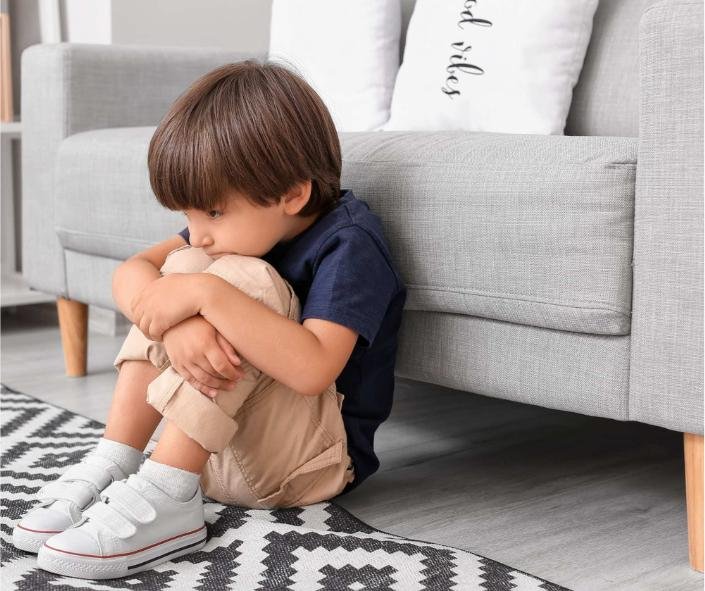Blog Topics Shortcut
- ADHD 12
- Accent Modification 9
- Apraxia 5
- Autism 9
- Bilingual 2
- Cluttering 3
- Cognitive Communication 15
- Down Syndrome 3
- Dysarthria 15
- Early Intervention 17
- Executive Function 21
- Gender Affirming Voice 13
- General Speech Therapy 33
- Language Skills 38
- Neurodivergence 34
- Parkinson's/LSVT LOUD 15
- Phonological Processing 13
- Professional Communication 69
- Public Speaking 62
- Social Skills 7
- Speech & Articulation 53
- Stroke/Aphasia 31
- Stuttering 19
- Swallowing 2
- TBI & Neurological Disorders 14
- Telehealth 9
- Tips for Parents 42
- Tongue Thrust 2
- VCD 3
- Voice 54
- Voice & Performance Coaching 17
Speech Therapy for Late Talkers: Helping Kids Find Their Voice
Hearing your child’s first words is a moment every parent treasures, but when those words take longer to arrive, it can spark worry and questions about the best way to help. Speech therapy offers tailored support for late talkers, using evidence-based strategies to build their vocabulary, enhance sentence formation, and foster confidence. With early intervention and guidance, late talkers can find their voice and thrive in their communication journey.
At What Age Should a Child Start Talking Clearly?
Understanding when a child should start talking clearly involves recognizing various stages of speech development. From babbling in infancy to forming simple sentences by age two, each phase builds toward clearer communication. Monitoring these milestones and addressing potential issues early can support your child's journey to effective speech and language skills.
A Guide to Intellectual Disability and Speech Delay in Children
Intellectual disability and speech delay are developmental challenges that profoundly affect a child's communication abilities and daily functioning. Early diagnosis and intervention through tailored therapies and a multidisciplinary approach can significantly improve outcomes and support the child's overall development.
How Many Words Should an 18-Month-Old Say?
Language development in toddlers varies widely. Most children say between 20 and 50 words by 18 months, though some may have fewer or more. Individual variation and exposure to multiple languages can influence this range. Encouraging language through talking, reading, and interactive activities is crucial for fostering communication skills.
Preschool Speech Therapy: Tips and Strategies for Success
Preschool speech therapy offers a targeted approach to addressing early speech and language delays, using engaging play-based activities to foster communication skills. Through a comprehensive evaluation, speech-language pathologists create personalized therapy plans that cater to each child's unique needs, enhancing articulation, vocabulary, and social communication.
A Parent's Comprehensive Guide to Speech Delay Treatment
Does your child babble less than their peers? Are you worried they might be falling behind in their speech development? You're not alone. Speech delays are a common concern for many parents, but the good news is that with the right guidance and support, your child can blossom into a confident communicator.
What Age Is Too Late For Speech Therapy?
This blog challenges the misconception that speech therapy is exclusively for children, highlighting its benefits across all age groups. It emphasizes the brain's lifelong capacity for learning and the personalized approach of speech therapy. Whether addressing developmental delays in children or communication difficulties in adults, speech therapy offers tailored solutions to improve quality of life through clear and confident communication.
What is the Most Common Cause of Speech Delay?
Speech delay is a common developmental concern affecting up to 12% of preschool children. It is characterized by a lag in speech and language milestones. While hearing loss is the primary cause, factors like oral-motor problems or language delays can also contribute. Effective treatment often involves speech-language therapy, crucial for addressing underlying issues and fostering robust communication skills early on.
Early Intervention Speech Therapy for Children: A Complete Guide
Empower your child's communication journey with our comprehensive early-intervention speech therapy. Gain insights and strategies for effective development, fostering clear and confident communication. Whether addressing specific concerns or seeking overall improvement, our guide provides essential tools for a successful speech therapy journey.
A Guide to Speech Therapy in Spanish: What You Need to Know
Spanish bilingual individuals are on a journey of communication excellence. They need tailored speech therapy solutions for effective language development and confidence. Explore our blog for insights on speech therapy in Spanish.
Speech Therapy for Kids: A Parent's Guide
Speech Therapy for kids is crucial for their development. Discover expert insights, tips, and resources in our comprehensive Parent's Guide, helping you effectively support your child's communication journey.
Speech Therapy At Home: 15 Useful Tips & Tricks For Parents
Are you looking for ways to support your child's speech therapy from the comfort of your own home? Look no further! From simple games and activities to playtime and storytelling, we've got you covered. Start making a difference in your child's speech therapy journey today!
Speech Therapy For a 3-Year-Old: How To Get Started
Are you wondering if your 3-year-old might benefit from speech therapy? This article will share tips on finding the right speech therapist and getting started with treatment. We'll also answer some common questions about speech therapy for 3-year-olds.
A Parent's Comprehensive Guide to Speech Therapy for Toddlers
If your toddler has difficulty speaking, it is important to consult with a speech pathologist. Learn all about how speech therapy for toddlers works and how you can help your child talk more clearly and improve their language skills.
Baby Babbling and First Words: Infant Communication Explained
Goo Goo Gaga. Mama. Dada. When do babies start babbling? Are you eagerly awaiting the day that your baby begins talking? Learn about the early stages of language development and how to foster communication skills in your young child.















